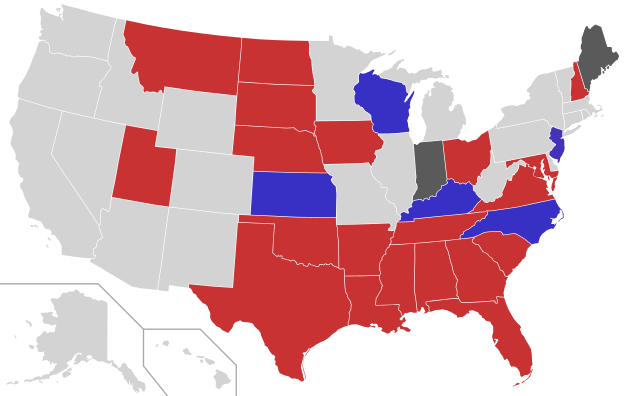TikTok ban in states hasty, too little information
About 30 states around the US have banned TikTok, the Chinese-owned social media app, due to worries about the app’s misuse of users’ data.
February 22, 2023
TikTok, the social media app that features anything from dancing videos, to cooking tutorials, to “dark humor”, has recently been banned on government-owned devices in several states, including Georgia. These state bans come following the passage of the House of Representatives’ $1.7 trillion spending package that includes a federal ban of TikTok on all government owned devices.
The first state to implement a ban was Oklahoma, whose Governor said that ban was in order to maintain the cybersecurity of the state government and that the state “will not participate in helping the Chinese Communist Party (CCP) gain access to government information.”
Even colleges have enforced a TikTok ban on university devices, with some even banning it on college Wifis. About 30 states and 16 colleges have implemented some sort of ban.
Anxieties about the app have been around for years, with ex-President Donald Trump going so far as to sign an executive order that banned people from downloading the app and banned any US transactions with the Chinese companies that own TikTok.
Though the order was never actually enforced, worries about the app have not subsided. Many studies have been done on the data collection method of TikTok in order to see just how much of our information the company can actually see.
In July of 2022, Internet 2.0, a US-Australian cybersecurity firm, did a report on the date collection of the app and found that it was “overly intrusive.” The report concluded that TikTok can access outside data on your phone such as calendar, device location, contacts and more.
However, TikTok has released many statements saying that it does not harvest any outside data from our phones and is not a security threat. While in reality this may not be true, banning the app due to fears of the CCP reveals an underlying US mistrust for China.
Results about the app’s data use have proved largely inconclusive, so we should take its theorized danger with a grain of salt. There is no need for states to ban the app, especially when it is being used by people of all ages as a form of entertainment.
In response to colleges around the country banning the app, TikTok released this statement, “‘We believe the concerns driving these decisions are largely fueled by misinformation about our company,’” and that, “’We are happy to continue having constructive meetings with state policymakers to discuss our privacy and security practices. We are disappointed that many state agencies, offices, and universities will no longer be able to use TikTok to build communities and connect with constituents.’”
With all of the mixed reviews and opinions circulating, it’s hard to be clear just how much information TikTok can access from your phone. Instead of banning TikTok in certain states and college owned devices, the government should better educate people on how to protect their information.
Before states and colleges make the decision of banning the popular app, there should be more, conclusive data about just how much TikTok can actually access on our phones. Without clear knowledge, banning TikTok just spreads more misinformation, anti-Chinese mentality, and anxiety.







